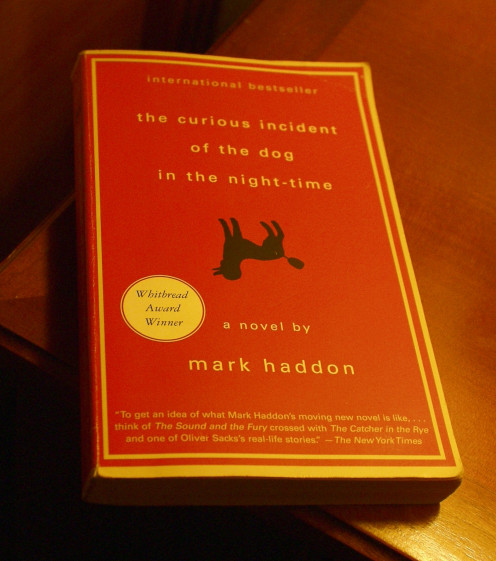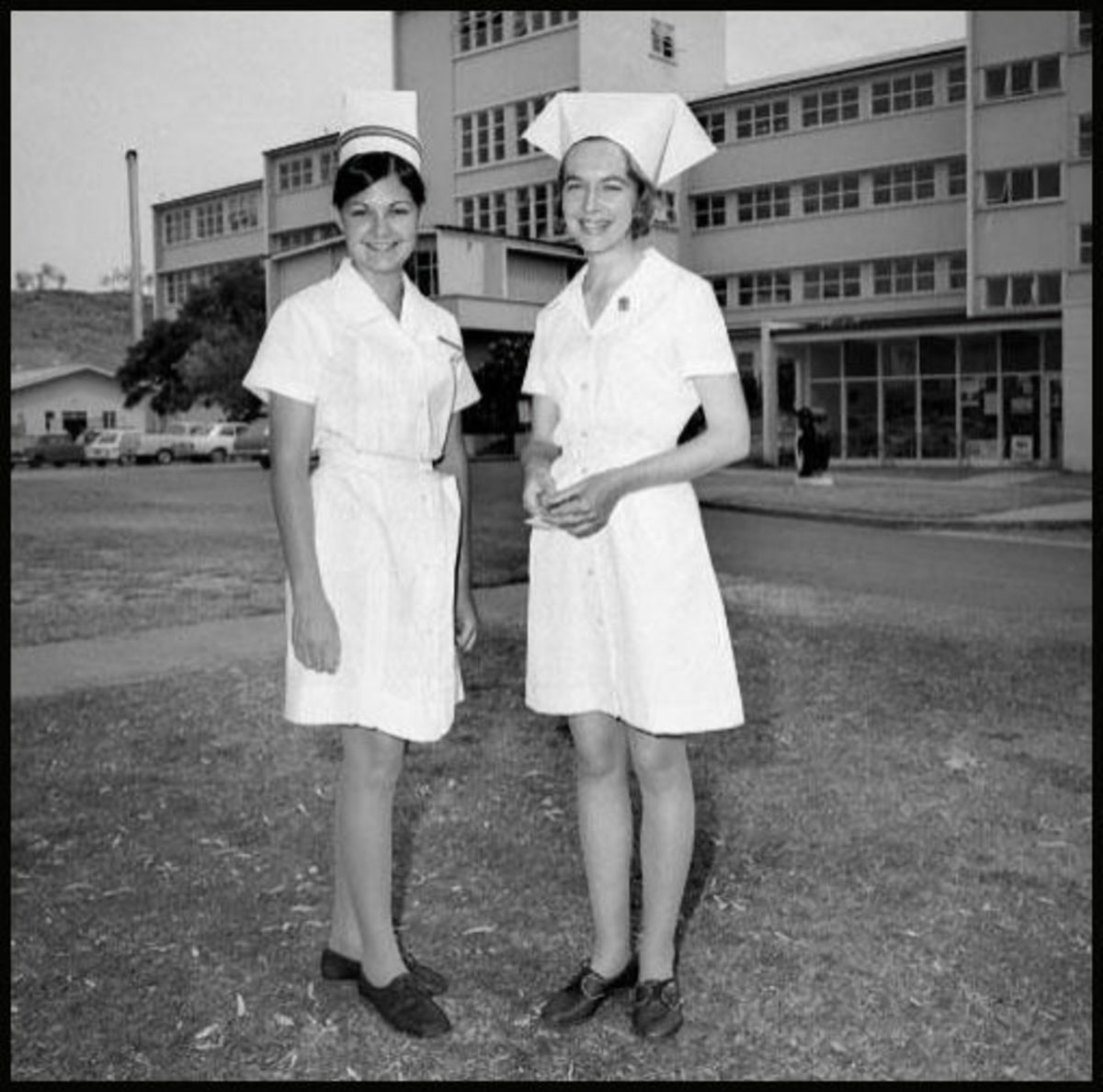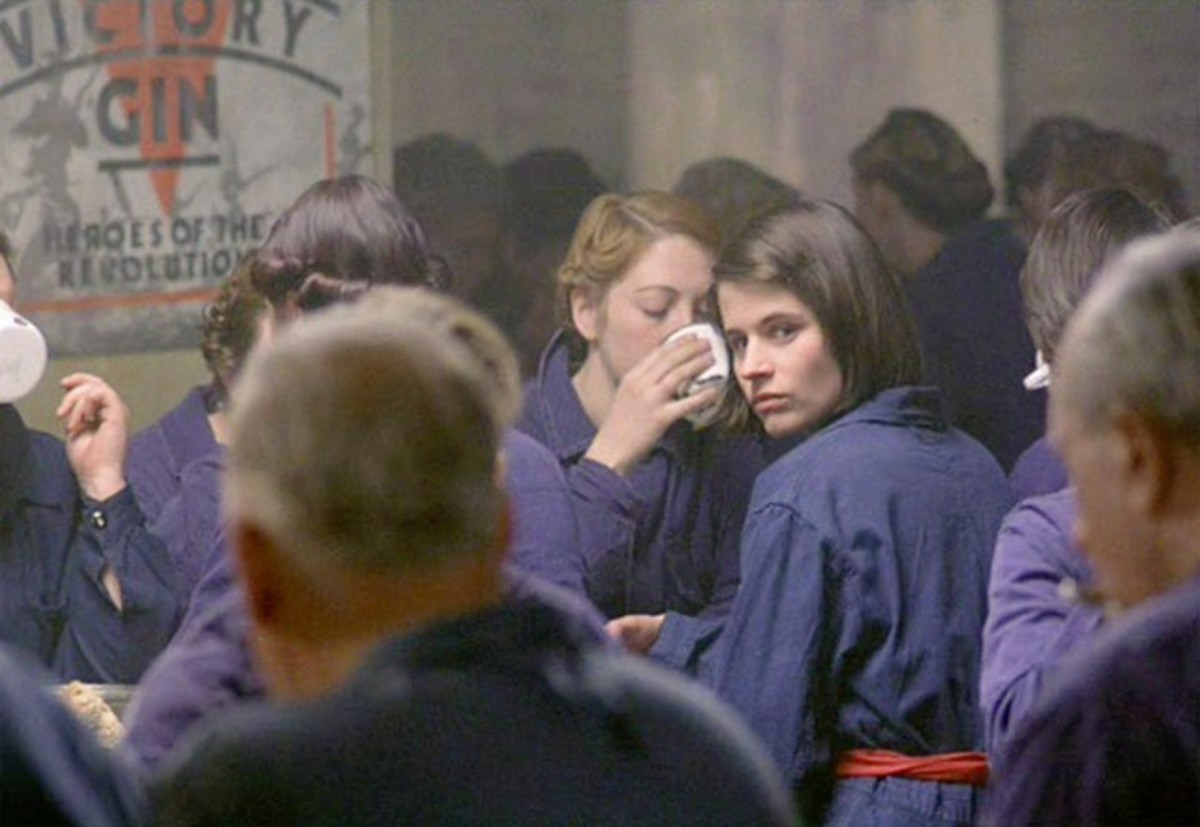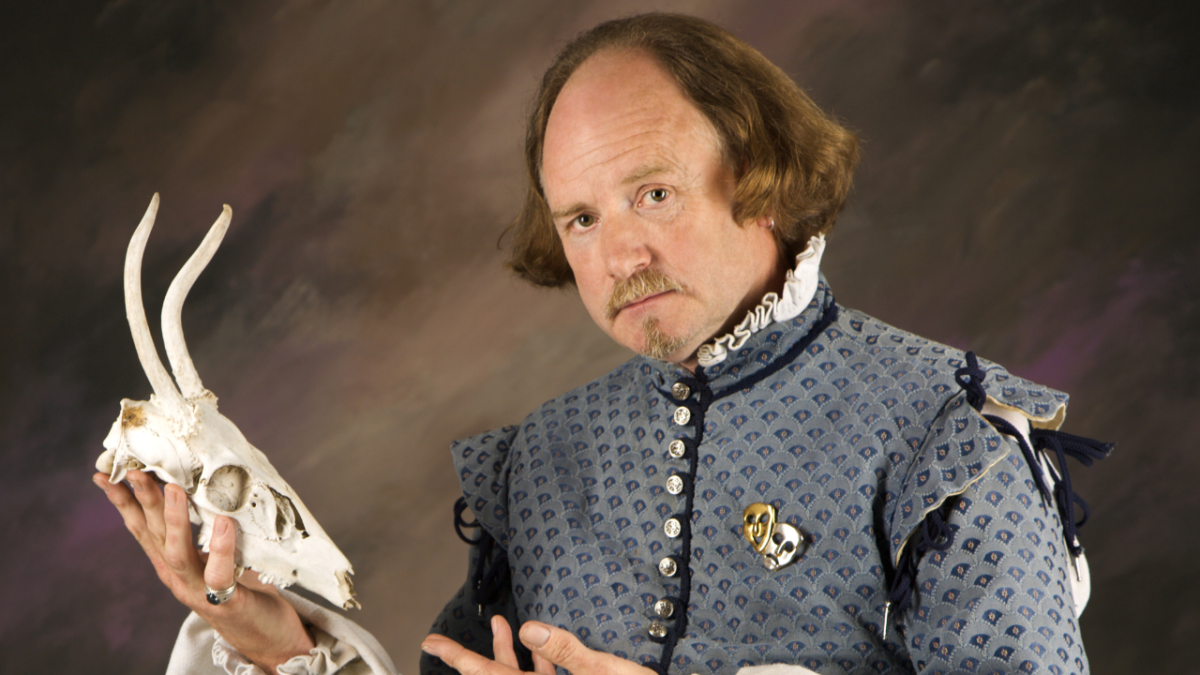The Curious Incident of the Dog in the Night-Time: Study Guide

Plot Summary
The Curious Incident of the Dog in the Night-Time, by British author Mark Haddon, is an insight into the mind of the incredible Christopher Boone, a fifteen year-old boy with Asperger's Syndrome. Christopher lives in the town of Swindon with only his father, as his mother died two years earlier. The novel is narrated by Christopher in the first person, and tells the story of his discovery of the body of Wellington, his neighbour Mrs Shears' beloved dog. Christopher does not like people, but he has no aversion to dogs, because it is not difficult to tell what they are thinking. So, on seeing Wellington lying in Mrs Shears' front garden with a garden fork sticking out of him, he goes into the yard and holds him. Mrs Shears then thinks that Christopher has killed her dog. A police officer comes to question Christopher and touches him; Christopher, not liking having his personal space invaded, hits the policeman and is arrested, but is later released with a caution.
Despite his father ordering him to stay out of other people's business, Christopher decides to investigate Wellington's murder. However, he finds this extremely difficult, because his autism makes it very hard for him to talk to people or step outside his regular routine. He overcomes this with the help of his teacher, Siobhan, who helps him record his experiences into a murder mystery novel. Through his investigation, Christopher is able to venture out of his comfort zone, and meet new people, such as an old lady in his street, Mrs Alexander. Mrs Alexander reveals to Christopher that his mother had been having an affair with Mr Shears, her neighbour, for a long time.
When Christopher's father, Ed, discovers his murder mystery novel, he confiscates it. He is angry at Christopher for defying his instruction to mind his own business. While Ed is out of the house, Christopher decides to look for his novel, and finds it in his father's bedroom, along with a stash of letters addressed to Christopher from his mother. The letters are all dated after the date of her supposed death. He reads the letters and realises that his father has lied to him and that his mother is, in fact, alive. Unable to comprehend such a gross breach of trust from his father, Christopher curls up on the bed, vomiting and groaning, unable to move. His father comes home and finds him like this, and confesses that he had lied about Judy's death because he didn't know how to explain to Christopher that she had left Ed for Mr Shears. He also admits it was him who killed Wellington, in a misguided attempt at revenge after an argument with Mrs Shears.
Unable to trust his father, and figuring that Ed might kill him next since he has already killed Wellington, Christopher runs away to find his mother in London. The journey is difficult for Christopher, because of the overwhelming amount of stimuli around him, including people, noises, smells and signs. After much trouble, he finds his mother's house. Judy is delighted to see him, although Mr Shears is less welcoming. He makes it clear that he wants nothing to do with Christopher. Judy, unable to be with someone who won't accept her son, leaves him and returns to Swindon with Christopher in order to allow him to take his A-level Maths exam.
They move into a rented flat, and Ed visits occasionally. He buys Christopher a pet dog and vows to rebuild their relationship. The novel ends on a positive note, with Christopher slowly rebuilding his relationship with both of his parents, achieving top results in his A-level Maths exam, and discovering that he can overcome some of the limitations of his condition.
Character Analysis
Christopher John Francis Boone
Christopher's condition is never actually named in the novel, but from his 'behavioural problems', we presume him to have Asperger's Syndrome or a similar Autism Spectrum Disorder. This severely limits his ability to interact with the world around him. He is unable to understand other people's emotional reactions and facial expressions, which can lead him to say very inappropriate things and feel very confused when socially interacting with others. For this reason, he avoids unfamiliar people, preferring to keep his world contained and manageable.
Christopher is something of a savant in the realm of Maths and Science, and has photographic memory. He can recall tiny details about any event, as well as word-for-word recollections of everything he has ever read. Christopher is very aware of his strengths as well as his limitations, and takes pride in his abilities. The fact that he is sitting his Maths A-level at the age of 15 is a huge achievement, and Christopher mentions with pride that he will be the first person at his school (a special school) to ever have sat an A-level exam.
Christopher progresses quite a lot throughout the novel, and takes some small steps towards independence. He begins to develop this independence by finding a loophole in his father's instructions not to investigate Wellington's death, which may be an indication that he is looking for an excuse to broaden the boundaries of his existence. He goes door-knocking on his street to ask questions about Wellington's death; which, of course, involves talking to strangers. As he faces each difficulty, he gradually becomes more and more confident, although he may not realise it. His quest for independence culminates in his tumultuous journey to London. Despite his immense difficulty with the train journey, the fact that he makes it to London safely by himself is a huge achievement, since he has never travelled independently before.
At the end of the novel, Christopher's future looks significantly more optimistic. He has tested the limits of his own abilities and found that he can achieve things he would have previously thought impossible. Although life is still very difficult for him, the reader is left with the sense that things might get a lot better for Christopher in the future.
Ed Boone
The overwhelming impression that we get of Ed is that he really loves his son, but does not always know the best way to deal with him. Ed sometimes loses his patience, and gets angry and frustrated with Christopher - an understandable reaction, considering the disintegration of his own relationship on top of dealing with an autistic son as a single parent. He has few friends, and has difficulty expressing his emotions, often finding himself stuttering and stammering when trying to explain how he feels. It is clear that Ed is not coping with his wife leaving him. It is insinuated, although never clearly stated, that he and Mrs Shears briefly attempt to seek solace in each other by beginning a relationship after Judy and Mr Shears leave together. The failure of this relationship is what prompts Ed to kill Wellington, although this is an indication of a much deeper frustration at being left on his own with a son he loves dearly, but does not understand.
He is exceptionally protective of Christopher, as we see after his outburst at the police officer for locking up Christopher at the beginning of the novel. It is this desire to protect his son that eventually results in him pushing Christopher away by lying about his mother's death. He is clearly committed to rebuilding his relationship with his son, and, as much as he does not always know how to cope with Christopher's unpredictable behaviour, he cannot imagine living without his son in his life.
Judy Boone
Judy is a difficult character to understand, in that she does not conform to society's expectations of a good mother. She leaves her son in order to be able to have a better life for herself, and does not really consider how he will cope without her. She insists that she was a terrible mother and that he will be better off without her - but, of course, it is really her who feels she will be better off without Christopher.
Then, in contradiction to this, she shows incredible dedication and patience when she writes Christopher forty-three letters, despite getting no response. When Mr Shears fails to accept Christopher, she leaves him without hesitation (although their relationship was not strong in the first place, and was more of an excuse for her to escape a life which was not living up to her expectations). She clearly loves her son, but has very significant doubts about her ability to take care of him. At the beginning of the novel, she is portrayed as a depressed daydreamer who cannot control her anxiety and temper when dealing with her son's eccentricities. At the end of the book, however, we see a strong, independent woman who is beginning to realise that her family is an inextricable part of her life.
Mrs Alexander
Mrs Alexander is an important character because she represents a significant development in Christopher's independence. His ability to talk to her is a huge step forward, and it is her who eventually reveals Judy's relationship with Mr Shears to Christopher. Her revelation is not intentional, at least initially. She does not even consider that Christopher could possibly not know, because everyone else did.
She is also a medium through which to demonstrate Christopher's difficulty in understanding and discriminating between people; the reader can recognise her as a nice old lady, but Christopher does not trust her, and is afraid that she might hurt him.
Siobhan
Siobhan is Christopher's teacher, and is the only person who can really understand his behaviour. He feels comfortable around her because she can put things in terms that Christopher understands. He often mentions her when talking about social communication, so we can presume that it is Siobhan who is teaching him most things about how to interact with others. She is kind, patient and understanding, and genuinely cares about Christopher's welfare.
Mr & Mrs Shears
Mr Shears, in the brief moment we see him in his relationship with Judy, seems cold and unfeeling, and we can presume that this is the same way in which he treated Mrs Shears during there marriage. He makes it clear that he does not want anything to do with Christopher, and it is this which prompts Judy to leave him - although it seems that she was never really happy with him in the first place.
Left behind when Mr Shears leaves, Mrs Shears attempts to begin a relationship with Ed Boone. This does not seem due to any particular attraction between them; Mrs Shears needs someone to cook for and clean up after, and Ed needs somebody for company and to fill the void left by Judy's departure. Mrs Shears seems to have very little patience for either Ed or Christopher, and their relationship comes to an inevitable end, causing Ed to kill Wellington.
Symbolism and Imagery
Symbolism
Prime Numbers
The unusual chapter numbers throughout the novel, as Christopher explains, are prime numbers. The use of prime numbers, which have a logical pattern but are difficult to figure out, are Christopher's representation of his feelings about life. He needs structure and logic in his life, and understands that there are certain structures and patterns to everything in life (such as social interactions) but he does not always understand the rules behind these patterns. The prime numbers are an attempt to provide a structure and boundaries to Christopher's life.
The Broken Photo of Christopher
At the end of the novel, Mr Shears arrives with a box of Judy's things and throws it onto the grass of their front lawn. A framed photo of Christopher falls from the box and smashes. This represents several things, including the role of Christopher in the disintegration of Judy and Mr Shears' relationship, as well as Christopher's very fragile understanding of himself.
The Coloured Cars
Christopher's system of determining whether he will have a good or a bad day based on the number of coloured cars he sees in a row is one of his many attempts to provide logic and structure to a world he does not understand. When he is in London, however, this system is proven ineffective because he could stare out the window all day, seeing cars to indicate that it was both a Good Day and a Black Day. This symbolises the incredible change Christopher's life has undergone, and his realisation that he has to find new ways of adapting to this strange new world.
Imagery
Christopher's relationship with metaphorical language means that imagery in the novel is almost non-existent, although that's not to say he doesn't comment on it. Siobhan instructs Christopher to include descriptions of things in his novel to make them more vivid for his reader, but his attempts to do this, which result in long lists of descriptions and very little detail of interest to anyone but himself, show his lack of understanding about the world.
Themes
Communication
Christopher's inability to communicate effectively dominates the novel, but he is not the only person with communication issues. Ed is unable to talk to anyone, even Christopher, about his feelings and frustrations, and often finds himself unable to express himself, resulting in angry or irrational behaviour. He cannot find the words to tell his son about his mother's affair, and so lies and says she is dead. Ed and Judy experience a communication breakdown in their relationship due to Judy's depression and their difficulties with Christopher. The novel demonstrates the importance of communication in effective relationships. At the end of the novel, it is only through truthful and honest communication that the Boone family begin to rebuild their relationships.
Truth
Christopher cannot tell a lie. This means he finds it incomprehensible that anyone else would lie to him, and when he finds out about his father's deceit, he feels that his father is now a danger to his safety. It is interesting to note that Christopher's version of the truth would be considered by most people as lying. When he finds a 'loophole' in Ed's instruction to mind his own business, he knows he is explicitly defying his father's demands, but because Ed did not say the actual words, Christopher feels able to justify his behaviour. The novel shows us the importance of telling the truth, if we want to have effective and happy relationships.
Isolation
Many characters in the novel experience a feeling of isolation and loneliness in the world. Christopher, of course, cannot interact effectively with the world around him, and so isolates himself from most people and things. Judy feels isolated in her loveless marriage to Ed and her inability to deal with Christopher, and so looks for solace in Mr Shears. Ed is left to deal with Christopher by himself after Judy leaves, and cannot cope without an emotional outlet for his feelings. Mrs Shears looks for comfort in Ed after Mr Shears leaves, and Mrs Alexander reaches out to Christopher for companionship to combat the isolation she feels in her old age.
Love
Love is not the most immediately obvious theme in the novel, but it really is the underlying motive for many of the characters' actions. Ed cares for and protects Christopher to the best of his ability because he loves him; Judy leaves her family behind, but still writes to her son 43 times even though she doesn't get a reply; Mrs Shears and Ed, and Mr Shears and Judy, look for love with each other when they find themselves in loveless marriages. Love drives everyone around Christopher, but, ironically, it is an emotion which he cannot entirely understand. Although he appreciates that his parents love him, he cannot reciprocate.









